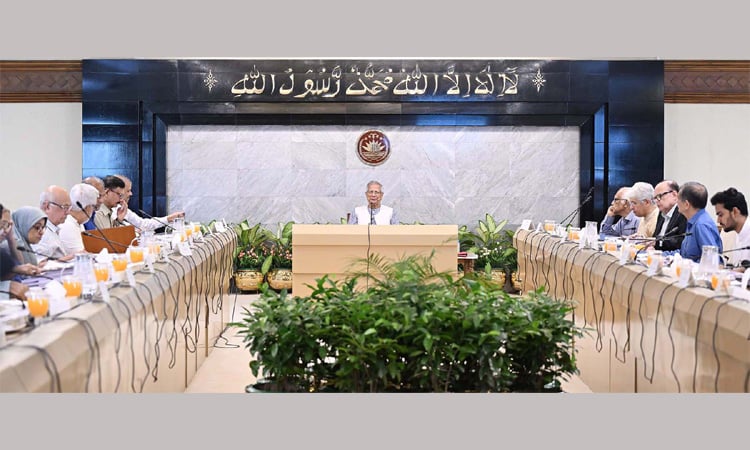News Flash

DHAKA, Oct 23, 2025 (BSS) - The interim government has approved the draft of the Bangladesh Labour Act (Amendment) Ordinance, 2025 aimed at expanding protections for workers, ensuring gender equality, and aligning national labour standards with international obligations under the International Labour Organization (ILO).
The approval came at the weekly meeting of the Council of Advisers held today at the Chief Adviser's Office in the city’s Tejgaon area with Chief Adviser Professor Muhammad Yunus in the chair.
“In the Bangladesh Labour Act (Amendment) Ordinance, 2025 various steps have been taken to protect the interest of our workers.
It brings major amendment to 90 sections under three schedules of the existing Labour Act,” Law Adviser Professor Asif Nazrul said at a briefing at the Foreign Service Academy here this afternoon after the meeting.
Chief Adviser’s Press Secretary Shafiqul Alam also spoke at the briefing.
He said the amendment has incorporated recommendations from the ILO’s Committee of Experts and extensive consultations among tripartite stakeholders — workers, employers, and the government.
The adviser said that the new ordinance extends the definition of “labour” to include domestic workers and sailors—two groups previously excluded from formal labour protection frameworks.
It ensures that they now fall under the protection of the Labour Law.
One of the most significant reforms is the abolition of blacklisting, a long-standing practice that allowed employers to deny future employment to workers accused of misconduct or labour activism.
“Blacklisting has been declared illegal,” Professor Nazrul said, adding, the ordinance also strengthens provisions against sexual harassment.
Maternity benefits and welfare support for female workers have been expanded, ensuring greater protection during pregnancy and postnatal periods, he said.
In addition, the new law simplifies the registration of trade unions and prohibits wage discrimination based on gender, mandating equal pay for equal work.
The amendment introduces a comprehensive accident compensation framework, including the establishment of a dedicated fund for the rehabilitation and medical treatment of workers injured on the job.